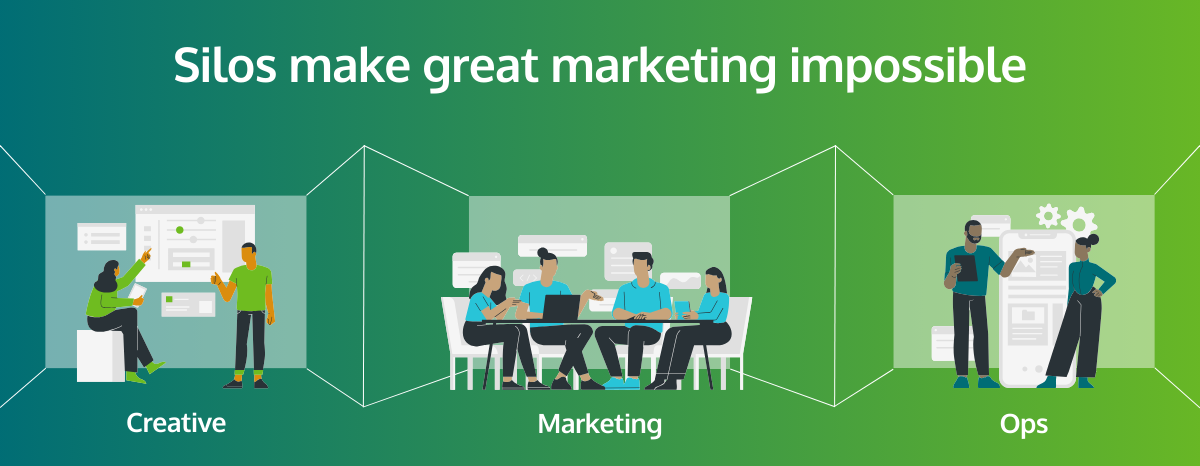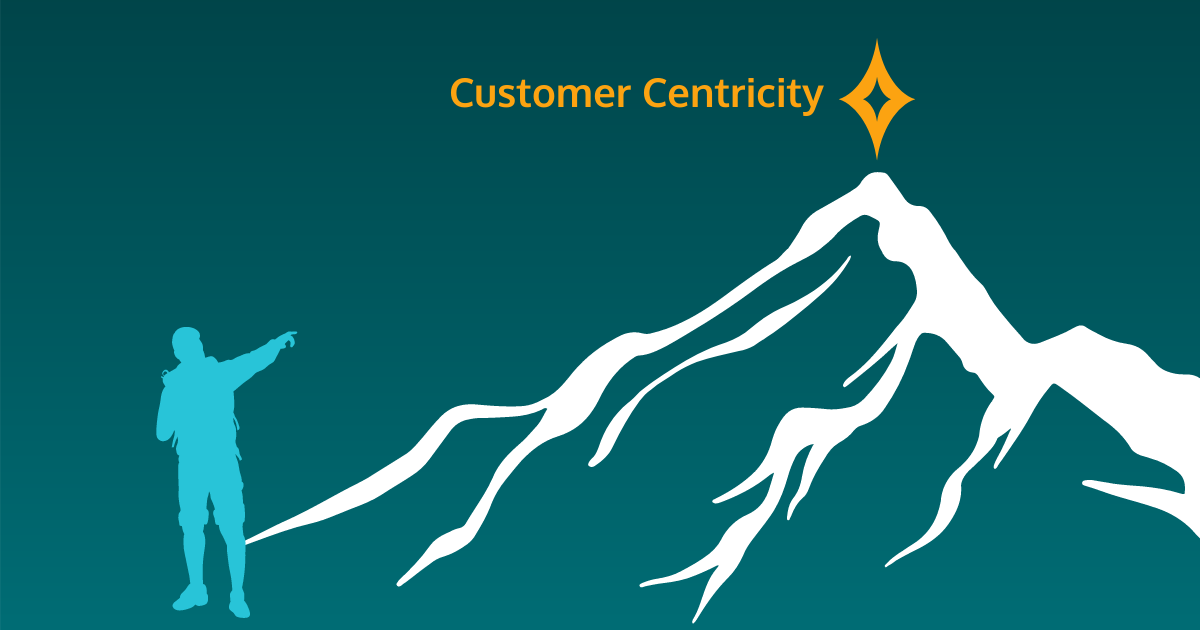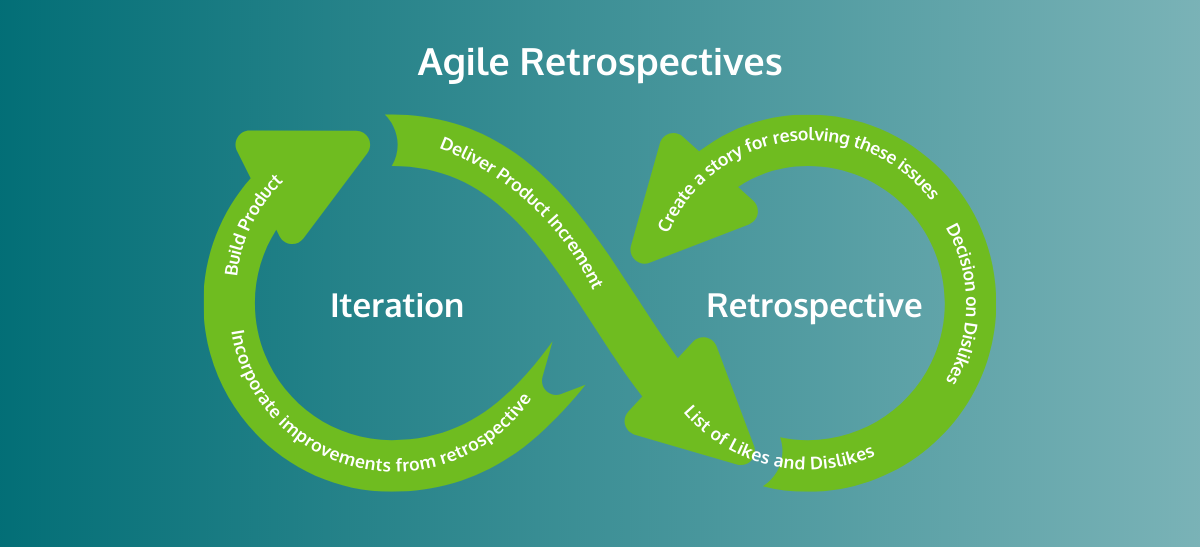-
- marketing agility
- Teams
- Organizations
- Education
- enterprise
- Articles
- Individuals
- Transformation
- Solution
- Leadership
- Getting Started
- business agility
- agile management
- going agile
- Frameworks
- agile mindset
- Agile Marketing Tools
- agile marketing journey
- organizational alignment
- Agile Marketers
- People
- Selection
- (Featured Posts)
- strategy
- agile journey
- Kanban
- Metrics and Data
- Resources
- Why Agile Marketing
- agile project management
- self-managing team
- Meetings
- Scrum
- agile adoption
- scaled agile marketing
- tactics
- scaled agile
- AI
- Agile Leadership
- Agile Meetings
- agile marketing training
- agile takeaways
- enterprise marketing agility
- agile coach
- Scrumban
- agile marketing planning
- state of agile marketing
- team empowerment
- Intermediate
- agile marketing mindset
- agile plan
- Individual
- Team
- Videos
- agile marketing
- agile transformation
- kanban board
- Agile Marketing Terms
- traditional marketing
- Agile Marketing Glossary
- FAQ
- agile marketing methodologies
- agile teams
- Agile Marketing Teams
- CoE
- Scrumban
- agile
- agile marketer
- agile marketing case study
- agile marketing coaching
- agile marketing leaders
- agile marketing metrics
- agile pilot
- agile sales
- agile team
- agile work breakdown
- cycle time
- employee satisfaction
- marketing value stream
- marketing-analytics
- remote teams
- sprints
- throughput
- work breakdown structure
- News
- agile brand
- agile marketing books
- agile marketing pilot
- agile marketing transformation
- agile review process
- agile team charter
- cost of delay
- hybrid framework
- pdca
- remote working
- scrum master
- stable agile teams
- stand ups
- startups
- team charter
- team morale
- user story
- value stream mapping
- visual workflow
How an Agile Marketing Process Makes Good Marketing Teams Great

Key Takeaways
- The Agile marketing process helps teams move faster, collaborate better, and stay aligned with customer needs in a rapidly changing market.
- Modern marketing success depends on operational agility (the ability to adapt, test, and deliver value at the speed of change).
- Agile marketing replaces rigid annual plans with short, iterative plans that encourage experimentation and continuous learning.
- Marketing leaders adopt Agile processes to gain speed, transparency, and measurable ROI, turning strategy into real-world results.
- Successful implementation starts small, focuses on people before tools, and evolves through collaboration, feedback, and improvement.
- Core principles include adaptability, cross-functional teamwork, customer-centricity, experimentation, and accountability.
- Common pitfalls like scaling too fast, neglecting culture, or mistaking agility for lack of planning can derail you from sustaining Agile marketing processes.
- Agile marketing scales effectively for both small and large teams, strengthening strategy rather than replacing it.
- When done right, the Agile marketing process transforms good marketing teams into great ones, achieving sustainable success in 2026 and beyond.
The table stakes of modern marketing just keep getting higher. We need cutting-edge technology, smart team members, a decent budget, strong messaging, and unrelenting customer-centricity.
But to break through the noise and make an impact on our customers’ buying behavior, even all of this isn’t enough. When just about every marketing team is creative and well-equipped, we have to do something to take things to the next level.
Whenever everybody’s doing good stuff, we have to become great.
And one of the least-used ways to reach this next level is by improving your processes. By paying attention to the ways you work, you have a shot at getting to market faster and iterating sooner, which means you’re more likely to create messaging, collateral, and campaigns that elicit the reaction you’re after.
Nowadays, marketing success increasingly depends not just on creativity or technology, but on operational agility, which in practice is the ability to adapt, test, and deliver value at the speed of change.
This is where Agile marketing processes become a true differentiator. They give teams a structured yet flexible way to plan, execute, and optimize campaigns using short, iterative cycles instead of rigid annual plans.
With Agile marketing, leaders can align strategy with data in real time, respond faster to emerging trends, and empower their teams to continuously improve, without burning out or losing focus on the customer.
Happily, we don’t have to invent these processes from scratch. We can use techniques from Agile project management to turn our really good marketing teams into great ones. Here’s how.
What Is the Agile Marketing Process?
In its essence, the Agile marketing process is a flexible, iterative approach to planning and executing marketing work. Instead of following long, rigid annual plans, Agile teams break their work into smaller, short-term cycles known as “sprints” (usually two to four weeks long).
Each sprint ends with a review of what worked, what didn’t, and how to improve in the next round.
This process draws its roots from Agile software development but has evolved to fit the fast-moving world of marketing. It replaces top-down planning with continuous collaboration, experimentation, and customer feedback. By doing so, it helps marketers stay aligned with real-time market signals, instead of outdated assumptions made months ago.
In practical terms, an Agile marketing process helps teams:
- Respond quickly to market changes and emerging opportunities.
- Collaborate across silos through transparent workflows and shared ownership.
- Test ideas and measure outcomes continuously rather than waiting for end-of-quarter reports.
- Deliver more customer value, faster, with less wasted effort and fewer missed opportunities.
While traditional marketing often focuses on completing projects, Agile marketing focuses on delivering outcomes and learning from every iteration. It’s not about doing more work. It's about doing the right work, better and faster.
In today’s uncertain environment, where AI, automation, and predictive analytics reshape how we engage audiences, the Agile marketing process ensures that human creativity and data-driven agility work hand in hand. Teams that master this process can pivot effortlessly, align with business strategy, and turn every campaign into a learning engine.

Why Marketing Leaders Are Embracing the Agile Marketing Process
Modern marketing leaders are under more pressure than ever to deliver results faster, smarter, and with fewer resources. As AI tools multiply, markets shift overnight, and customer preferences evolve in weeks instead of months, even the best-laid marketing plans can become outdated before they launch.
That’s why more marketing executives are turning to Agile marketing processes, not just as a productivity framework, but as a strategic advantage. It gives teams the ability to adapt in real time, learn continuously, and align their efforts tightly with business goals.
Here are three major reasons marketing leaders are embracing agility in today’s uncertain business environment:
1. Speed and Responsiveness Are Now Table Stakes
In the era of predictive analytics and instant consumer feedback, the ability to pivot quickly is a competitive necessity. Agile marketing allows teams to iterate on campaigns weekly, not quarterly, and to act on customer insights almost as soon as they appear.
2. Cross-Functional Collaboration Drives Innovation
Agile marketing breaks down silos between creative, data, and strategy teams. This increased transparency helps leaders get full visibility into what’s working and empowers every marketer to contribute to problem-solving, not just execution.
3. Continuous Learning Outperforms Static Planning
In traditional marketing, teams often “set and forget” campaigns. Agile marketing flips that model, encouraging experimentation, testing, and fast feedback loops. This not only reduces waste but builds a culture of evidence-based improvement, something AI systems and analytics tools can now accelerate dramatically.
According to the 2025 State of Agile Marketing Report by AgileSherpas, more than 60% of marketing leaders report faster delivery times and stronger alignment with business strategy after adopting agile ways of working.
Simply put, marketing agility has become a leadership imperative. It’s no longer about controlling every detail. It's about creating the conditions where great marketing can happen faster, smarter, and more sustainably.
How to Implement an Agile Marketing Process
By now, it’s clear why Agile marketing processes have become essential. They enable faster decision-making, stronger collaboration, and measurable results. But for many marketing teams, the real challenge isn’t understanding the concept. It’s figuring out how to put it into practice.
The good news: you don’t have to reinvent your workflows overnight. Implementing Agile marketing is an evolution, not a revolution.
The process begins with small, intentional changes that compound over time, from how you plan and prioritize work to how your team communicates, experiments, and learns.
Most successful Agile marketing transformations start with three foundational shifts. We’ll explore how to apply each of them in practice. Each step represents a key pillar of the Agile marketing process.
Think of it as your roadmap for turning a good marketing team into a great one, a sprint at a time.
Build Adaptability Into Your Marketing Processes
Traditional marketing plans often have long timelines, making it tough to adapt when market dynamics change. In contrast, Agile marketing often breaks projects into short, manageable increments known as "sprints." These sprints are typically two weeks long, allowing your team to reassess priorities regularly and respond quickly to emerging opportunities or challenges.
As a marketing leader, imagine how different your outcomes would be if you had the ability to seize unexpected market shifts two or three times faster than your competitors.
Agile marketing teams can adjust strategies, campaigns, and messaging in near real-time, so they stay relevant to customers and effective at hitting their targets.
With an Agile marketing process, leaders can navigate uncertainty with confidence, moving at the speed of buying behavior and adapting whenever conditions dictate.
Foster Collaboration and Communication
Many marketing teams are built around functional silos, which can impede progress and limit creativity. Agile marketing processes, on the other hand, emphasize cross-functional collaboration and transparent communication, nurturing a culture of teamwork.

Through their stand-up meetings (held at least three times per week, but ideally every weekday), team members share progress, insights and potential roadblocks. This increased visibility allows everyone to understand the bigger picture, align their efforts and support each other if work starts to fall behind schedule.
As a marketing leader, picture a team where designers, copywriters, data analysts and strategists work seamlessly together, fostering a creative environment that breeds innovation.
Agile marketing teams break down barriers, encouraging open discussions and creating a collective sense of ownership.
With improved collaboration, your team becomes a well-oiled machine, capable of producing remarkable marketing campaigns.
Put the Customer at the Center of All Your Marketing Processes
The best marketing comes from understanding and fulfilling customer needs, and agile marketing is no different. Agile processes are inherently customer-centric, using tools like user stories to ensure all the work being done provides value to a customer and solves their biggest pain points.
When we combine this with the habit of regularly seeking feedback and iterating on what they learn, it’s clear how agile teams outperform their traditional counterparts.
A good team that’s built a deep, empathetic understanding of their customers' preferences and pain points will catapult quickly to great.
Agile marketing ensures your team crafts personalized, resonant messages that connect with your audience on a profound level. This customer-focused approach enhances brand loyalty and cultivates long-term customer relationships, further cementing the advantages enjoyed by those teams with truly agile marketing processes.
Before proceeding to learn why you should embrace experimentation, take a moment to explore The Agile Marketing Credo — the new foundation for how modern marketers work with clarity, focus, and impact.

Embrace Experimentation
With customer expectations changing constantly, experimentation is vital to uncovering great marketing approaches. Even the most seasoned leaders can’t be right all the time.
Agile marketing facilitates a test-and-learn approach, allowing teams to run small-scale experiments within each sprint. They collect data in as close to real-time as possible, and then make adjustments in upcoming sprints based on what they learn.
This data-driven decision-making process ensures that your marketing efforts are based on evidence rather than assumptions, reducing the risk of expensive mistakes.
When teams embrace experimentation fearlessly, they uncover great ideas that outperform average ones every time.
Agile empowers your team to explore innovative ideas, gather valuable data and optimize marketing campaigns continually. This culture of learning and improvement drives your team to stay ahead of the curve and adapt to changing consumer preferences with ease.
Trade Micromanagement for Accountability and Ownership
Agile marketing builds a sense of accountability and ownership among team members, (especially when their leaders deliberately let go of any tendencies to micromanage).
Each sprint begins with a collaborative planning session where tasks are allocated based on skill sets and expertise — not based on the leader’s assignments. Team members commit to specific deliverables, fostering a sense of responsibility for the success of all the work.
Having an engaged and responsible team can be enormously freeing for leaders. Agile marketing processes create space for senior leaders to focus on strategic direction, which helps make sure the team’s work is tightly aligned to business objectives and market demands.
All of this together translates into increased productivity and quality of output, elevating your team's overall performance.
Test, Learn, and Repeat
The pursuit of greatness never ends; agile marketing embodies a philosophy of continual learning and improvement. At the end of each sprint, the team conducts a retrospective where they identify successes, challenges and lessons learned. This introspection empowers your team to refine their marketing processes, optimize workflows and enhance performance over time.

This means that even as your team gets great, it’s set up to get ever greater thanks to its commitment to continual improvement and learning. This kind of culture drives sustainable success, equipping your team with the tools to thrive in an ever-changing market.
Use Processes to Reduce Time to Market
While agility isn’t just about speed, there’s no denying that with the current rate of change in the market, speed matters. Agile marketing's iterative approach enables marketing teams to deliver projects faster, and then iterate on performance just as quickly.
Agile marketing leaders can benefit from the competitive advantage of being first to market, staying ahead of competitors and maximizing emerging opportunities. Over time this speed leads to better ROI on all the individual campaigns that are swiftly executed, as well as growing brand awareness and reach.
Keep the Best Marketers on Your Team
A happy, motivated team is a great, high-performing team. Agile marketing fosters a positive work environment by empowering team members to contribute and collaborate. When leaders involve team members in decision-making and provide opportunities for skill development, they cultivate job satisfaction and boost team morale.
When you have a team that’s passionate, engaged and committed to achieving greatness, their process becomes yet another arrow in their marketing quiver.

Common Pitfalls When Adopting an Agile Marketing Process
While the benefits of an Agile marketing process are clear, implementing it effectively can be challenging, especially for teams transitioning from traditional planning models. Awareness of common pitfalls can help marketing leaders navigate the change more smoothly and get value from agility faster.
1. Confusing “Agile” With “Unplanned”
One of the biggest misconceptions about Agile marketing is that it means working without a plan. In reality, agility requires structure, just a different kind. Agile teams plan in shorter cycles and adjust based on real-world feedback, but they always work from a prioritized backlog of ideas and goals. Without that, teams risk chaos instead of agility.
2. Over-Focusing on Tools Instead of Mindset
It’s tempting to equate buying a Kanban board or sprint-tracking software with “becoming Agile.” But tools are only as effective as the mindset behind them. The Agile marketing process is rooted in values like transparency, trust, and continuous improvement, not just automation. Successful teams focus on people and process first, technology second.
3. Lack of Leadership Buy-In
If agility is seen as a “team-level experiment” rather than a strategic shift, it won’t stick. Leaders play a critical role in modeling Agile principles, empowering teams to make decisions, removing blockers, and celebrating learning as much as outcomes. Without visible executive support, the process often reverts to old habits during periods of stress or uncertainty.
4. Ignoring the Need for Data and Measurement
Agile marketing thrives on feedback loops. Without clear metrics such as cycle time, campaign ROI, or test success rates, teams can’t learn effectively. Nowadays, with AI-driven analytics and predictive insights readily available, there’s no excuse for flying blind. Data should be used not just to prove success, but to guide the next iteration.
5. Scaling Too Fast, Too Soon
Another common pitfall is trying to make the entire marketing department “Agile” overnight. True agility scales best when piloted first by starting small, learning, refining, and then expanding to other teams. This gradual approach builds confidence and consistency while avoiding burnout or cultural resistance.
6. Neglecting Culture and Change Management
Perhaps the most underestimated factor is culture. Agile marketing represents a shift in mindset from control to trust, from perfection to progress. Without investing in change management, team training, and communication, even the best-designed agile process can stall. Teams that thrive are those that embrace learning, celebrate iteration, and make psychological safety part of their process.
Avoiding these pitfalls doesn’t require perfection. It requires awareness, patience, and consistent improvement. The goal isn’t to “do Agile marketing” by the book, but to evolve toward agility in a way that fits your organization’s unique needs and rhythm.
Frequently Asked Questions About the Agile Marketing Process
1. What is an Agile marketing process in simple terms?
An Agile marketing process is a way of managing marketing work in short, focused cycles called sprints. Instead of following rigid annual plans, teams plan smaller chunks of work, measure results, and continuously improve based on real data and customer feedback.
2. How is Agile marketing different from traditional marketing?
Traditional marketing relies on fixed campaigns and long timelines. Agile marketing, by contrast, emphasizes adaptability, experimentation, and collaboration. It allows marketers to respond to new trends, adjust messaging quickly, and test multiple approaches without waiting for the next planning cycle.
3. What are the main frameworks used in Agile marketing?
Most marketing teams use adapted versions of Scrum, Kanban, or Scrumban. Scrum focuses on fixed-length sprints and regular retrospectives; Kanban emphasizes visualizing work and limiting tasks in progress; Scrumban combines both for flexible, continuous delivery.
4. How long should a marketing sprint last?
Marketing sprints typically last between two and four weeks, depending on team size and project complexity. Shorter sprints work well for fast-moving campaigns or creative testing, while longer ones fit larger initiatives like website redesigns or strategic launches.
5. What tools support the Agile marketing process?
Popular tools include Trello, Jira, Asana, and Monday.com for task management, alongside dashboards for analytics and performance tracking. The best tools are those that enhance visibility and collaboration without overcomplicating the workflow.
6. How do you measure success in Agile marketing?
Key metrics include cycle time (how long work takes), throughput (how much gets done), campaign ROI, and experiment success rates. Many teams also track “learning velocity” (how quickly insights from tests are turned into new actions).
7. Can small marketing teams use Agile processes effectively?
Absolutely. Agile marketing scales down easily. Small teams often find it easier to adopt agile practices because communication and decision-making are faster. The key is to start simple; even a two-person team can benefit from sprints and retrospectives.
8. Does Agile marketing replace the need for a marketing strategy?
No. Agile doesn’t eliminate strategy. It strengthens it. Strategy defines where you’re going; the Agile process defines how you’ll get there and adjust along the way. Agile teams revisit their strategic goals frequently to ensure alignment and impact.
Turning Good Teams Into Great Ones With the Agile Marketing Process
Agile marketing processes hold the key to transforming good marketing teams into great ones.
Through its diverse set of benefits, Agile marketing process empowers your team to achieve exceptional results. Marketing leaders who successfully implement Agile ways of working can unlock their teams’ full potential and enjoy sustained success in today's dynamic and uncertain landscape.
Before you move on, why don't you take a minute to check if bad processes are wasting your marketing budget?
Topics discussed

Andrea Fryrear is a co-founder of AgileSherpas and oversees training, coaching, and consulting efforts for enterprise Agile marketing transformations.
Improve your Marketing Ops every week
Subscribe to our blog to get insights sent directly to your inbox.


